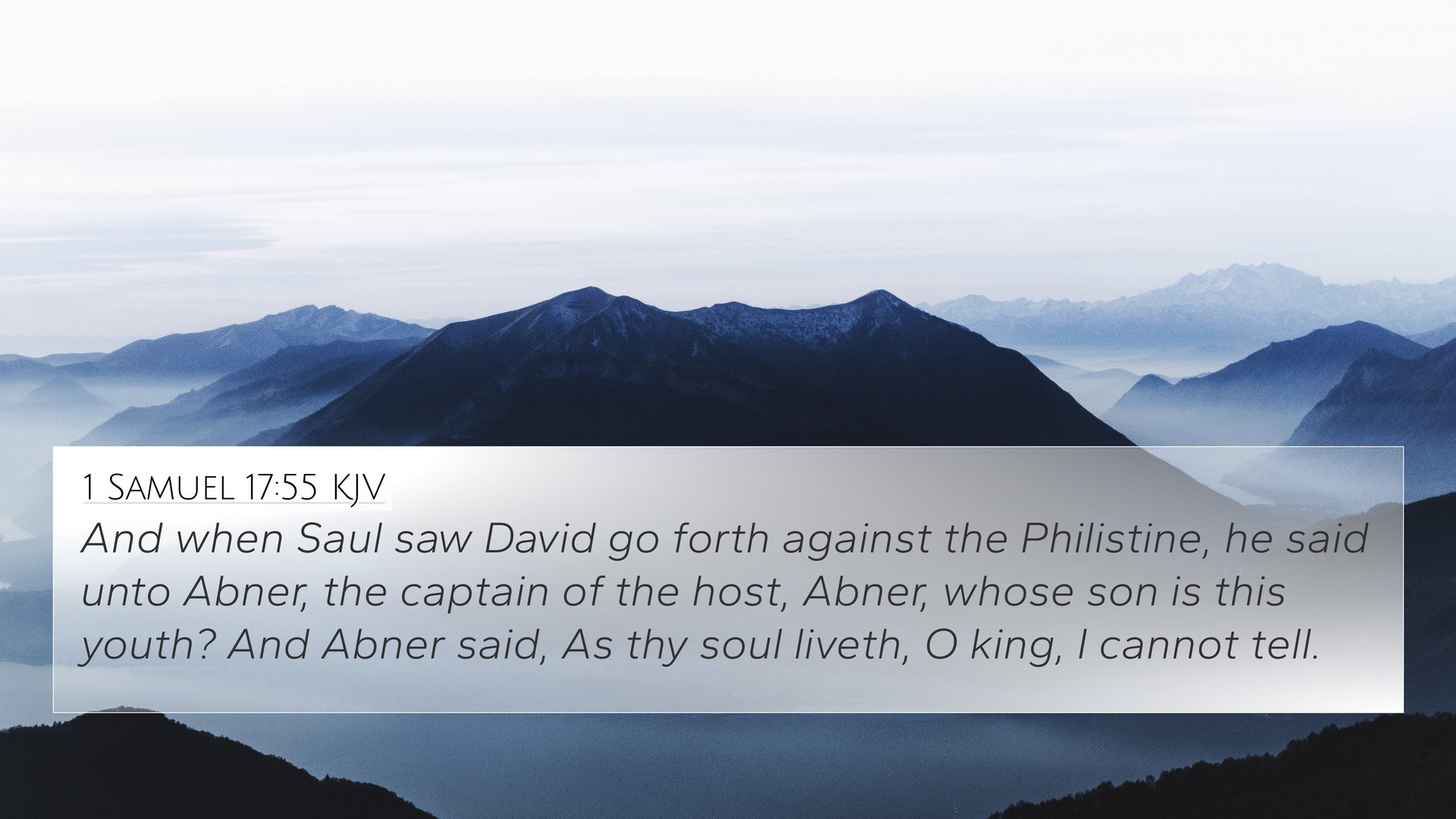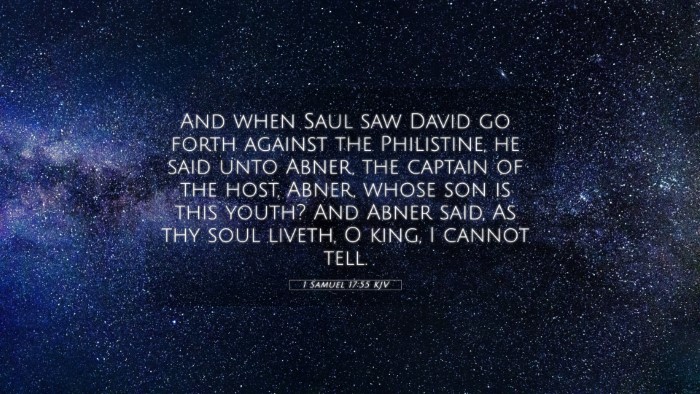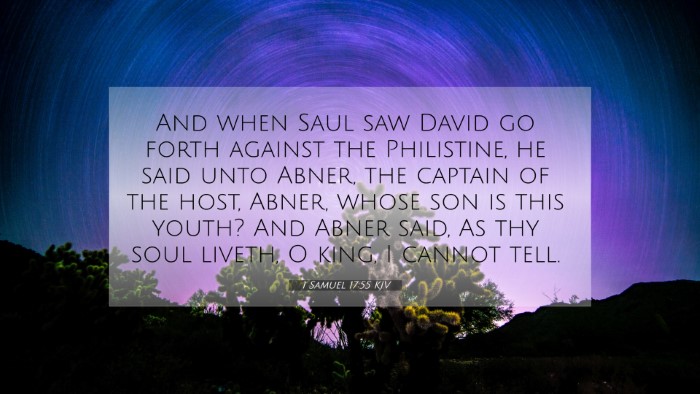Meaning and Interpretation of 1 Samuel 17:55
Verse Reference: 1 Samuel 17:55
"And when Saul saw David go forth against the Philistine, he said unto Abner, the captain of the host, Abner, whose son is this youth? And Abner said, As thy soul liveth, O king, I cannot tell."
Summary of Commentary Insights
This verse captures a pivotal moment in the account of David and Goliath, illustrating King Saul's curiosity about David's identity as he enters the battlefield to face the giant. Various public domain commentaries provide rich insights into this moment:
-
Matthew Henry's Commentary:
Henry emphasizes that Saul's question about David indicates both ignorance and the importance of knowing who is on one’s side in battle. It reflects Saul's growing unease and the uncertainty surrounding David's unexpected rise as a warrior.
-
Albert Barnes' Notes:
Barnes notes that Saul's inquiry highlights the lack of recognition of whom God has chosen as the deliverer of Israel, portraying Saul’s oversight of David's divine anointing. His reference to Abner shows reliance on others’ knowledge, suggesting a disconnection from God’s plans.
-
Adam Clarke's Commentary:
Clarke points out that the urgency of the situation may have clouded Saul’s ability to recognize David. He draws attention to the fact that Abner, despite being a seasoned warrior, could not identify David, which conveys how God can establish His chosen ones in ways unnoticed by human leaders.
Thematic Connections
This verse also opens up numerous connections between Bible verses regarding God's selection of unlikely heroes, recognition of God’s providence, and the way leaders discern genuine talent. The following cross-references highlight these themes:
- 1 Samuel 16:13 - God's anointing of David signifies His choice.
- Psalm 78:70-72 - A reflection on God's choice of David from the sheepfold.
- 1 Samuel 10:1 - Saul’s anointing as king; the contrast between Saul and David.
- 1 Timothy 1:12 - Paul’s acknowledgment of God’s empowering grace, parallel to David.
- 1 Peter 2:9 - The chosen generation, illustrating how God selects individuals.
- Luke 2:52 - Jesus growing in wisdom and stature, aligning with the development of David.
- John 7:27 - Recognizing the Messiah, paralleling Saul's failure to recognize David’s significance.
Comparative Analysis
In undertaking a comparative Bible verse analysis, it is essential to understand Saul as representing human judgment clouded by fear and uncertainty. Conversely, David symbolizes faith and God’s choice, connecting this narrative to themes of divine providence and the preparation of leaders.
Cross-Referencing Approach
When studying this verse, consider the following tools:
- Bible Concordance: A helpful tool for locating key themes and characters.
- Bible Cross-Reference Guide: This resource can enhance understanding of related narratives.
- Cross-Reference Bible Study: Engaging in this approach assists in drawing connections.
Understanding the Role of Leaders
Saul's inquiry into David's lineage reflects a critical examination of leadership roles and the divine orchestrations involving them. It teaches modern readers about the essence of recognizing God’s appointed figures, the importance of guidance from seasoned mentors (like Abner), and the necessity of spiritual awareness in leadership.
Reflection and Application
As we reflect on 1 Samuel 17:55, the question arises: how can contemporary believers emulate David's approach to faith and trust in God's plan while avoiding the pitfall of Saul's limited perspective? This passage offers great insight into identifying God's chosen ones in our lives and remaining open to divine wisdom.
Final Thoughts
In conclusion, understanding this verse requires a multifaceted approach that involves cross-referencing biblical texts and exploring connections between verses. This enables a richer understanding of the biblical narrative and God’s intention.




